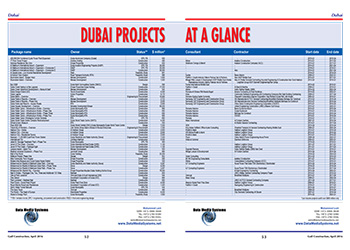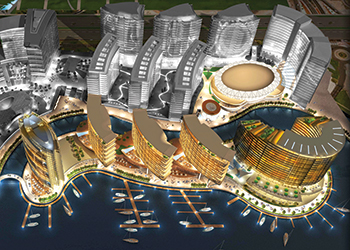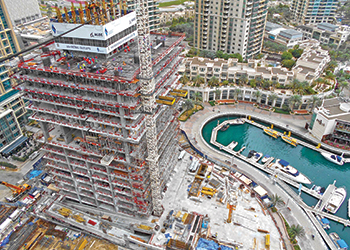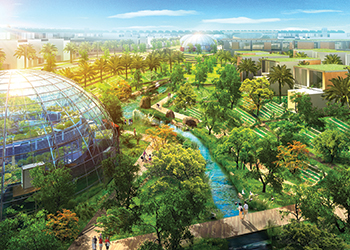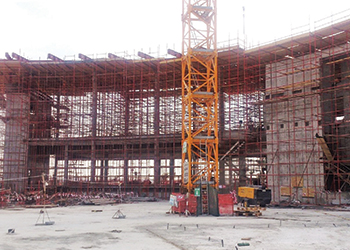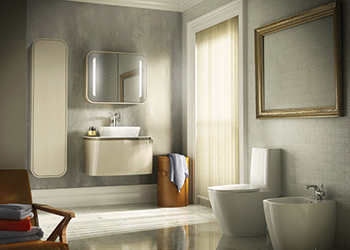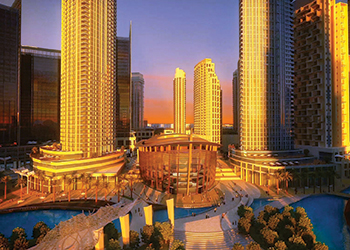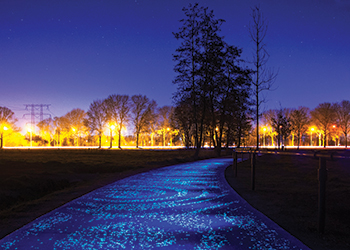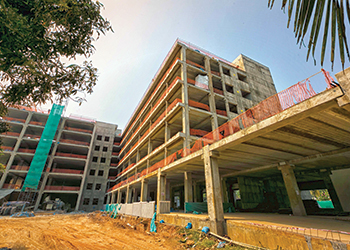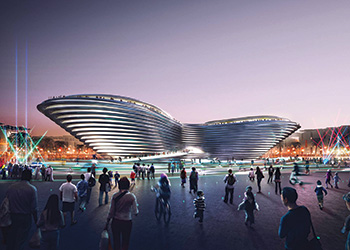
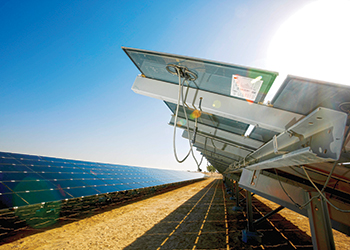 PV modules at Mohammed bin Rashid Al Maktoum Solar Park.
PV modules at Mohammed bin Rashid Al Maktoum Solar Park.
First Solar, a global leader in photovoltaic (PV) solar energy solutions, will start shipping the first consignment of its high-performance photovoltaic (PV) modules for the 200-MW Phase Two of the Mohammed bin Rashid Al Maktoum Solar Park in the second quarter of this year.
By the year-end, the company will have supplied more than 2.3 million of the high-performance thin film photovoltaic modules needed to power the Dubai facility.
Expected to be the largest of its kind in the Middle East when completed in early 2017, the solar plant will produce enough energy to power 30,000 average homes in the UAE and will displace over 469,650 tons of carbon dioxide per year. The project will be powered by 2.36 million First Solar modules, compared to the 152,880 that were installed in the 13-MW AC first phase.
“Based on its size and location, Phase One of the Mohammed bin Rashid Al Maktoum Solar Park is characterised as having established new standards for the development of utility-scale solar power plants in the Middle East,” says Dr Raed Bkayrat, vice-president of business development for First Solar in the Middle East. “It is also an excellent example of First Solar’s industry-leading EPC (engineering, procurement and construction) and technological capabilities.”
Since its completion, the solar park has been seamlessly integrated into Dubai’s electricity grid and its high performance attests to the suitability of First Solar’s thin film module technology to the region’s abrasive environmental conditions, says Dr Bkayrat.
“In fact, the plant performance and power output has surpassed the guarantees we gave the Dubai Electricity and Water Authority (Dewa). This consistently reliable performance in actual hot, humid weather and high soiling conditions played a significant role in thin film being specified as the technology of choice for the plant,” he adds.
First Solar’s advanced PV modules have set the industry benchmark with over 10 GW installed worldwide. Offering highly predictable energy in all climates and applications, the modules have been independently tested to pass accelerated life and stress tests beyond industry standards. With both a superior temperature coefficient and superior spectral response, they have been independently certified for reliable performance in high temperature, high humidity, extreme desert and coastal environments, Dr Bkayrat says.
In Jordan, First Solar has an EPC contract for the 52.5-MW Shams Ma’an project, which is expected to be completed on schedule in the third quarter of this year.
“As of mid-January, have completed installing 50 per cent of the steel posts that serve as the foundation of the power plant. We expect to deliver all the modules to the site before the end of the second quarter of this year,” says Dr Bkayrat.
In Egypt, the company is fully engaged as both developer and technology provider to other successful developers, like the country’s solar energy feed-in-tariff (FiT) programme.
“We have already been allocated a 50-MW project, which is subject to licensing and permitting. Additionally, there has been significant interest from other developers keen to leverage our verified energy yield advantage in Egypt’s Benban region,” he adds.
 |
Dr Bkayrat. |
Growth strategy
First Solar follows a three-pronged strategy in the Middle East, says Dr Bkayrat.
“In new and emerging markets, we are willing to take on the role of a one-stop shop for solar energy, if that’s what’s needed to help get a national programme off the ground. In instances like these, we could take on the role of developer, EPC and module supplier, if it helps establish a local reference that will set a strong precedent for the development of a robust solar energy market. Our involvement in the Shams Ma’an project is an excellent example of this approach.
“In maturing markets where we have access to strong partners, experienced in development and EPC, we are happy to boost the competitiveness of their projects with our high-performance PV module technology. A good example is the selection of our module technology to power the second phase of the Mohammed bin Rashid Al Maktoum Solar Park.
“And finally, we can also selectively draw on our capabilities as a vertically integrated company to enable a country’s solar energy programme. For instance, we can work with an experienced EPC company, which has never built a solar power plant before, to ensure that it has access to our extensive engineering expertise, in addition to supplying them with our technology.
“This strategy has led to us earning the lead position in the Middle East market with a projected installed capacity of at least 270 MW by the start of 2017.”
Future plans
While he will not comment on plans for the future, Dr Bkayrat says that any decision on expanding the company’s global manufacturing footprint “will need to be driven by tangible demand, among other important factors”.
First Solar modules are currently being produced at its manufacturing plants located in Kulim, Malaysia, and Ohio, the US.





















_0001.jpg)


.jpg)
















.jpg)








.jpg)



